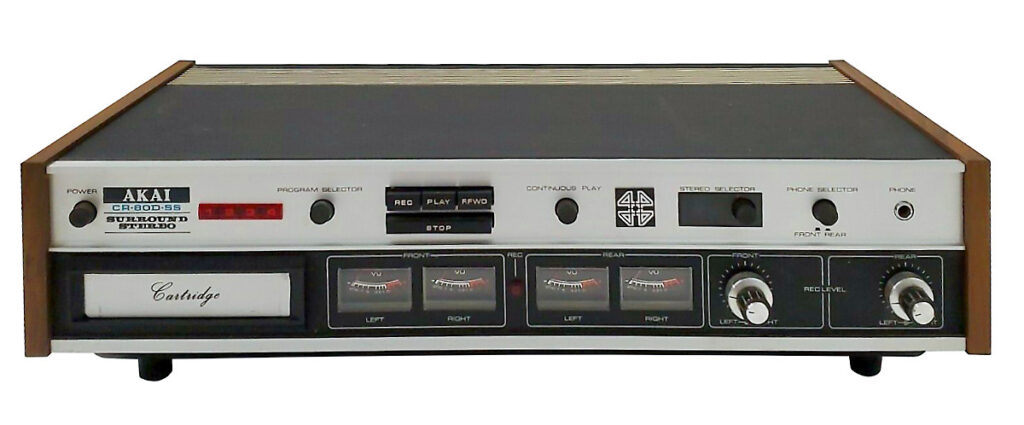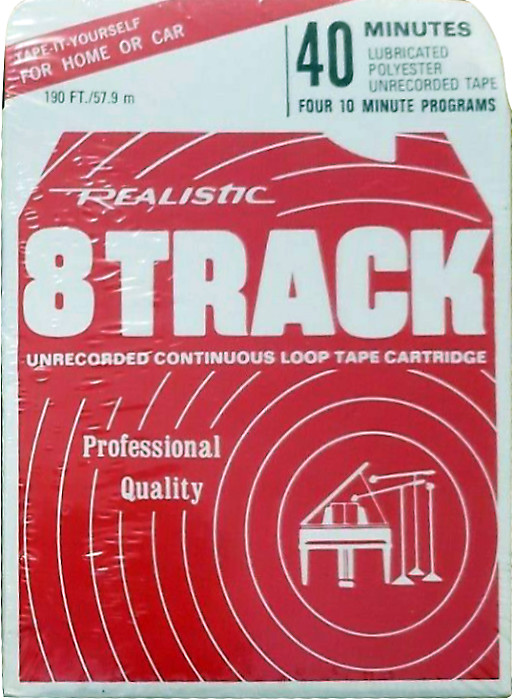Just like cassettes, blank 8-track tapes were sold throughout the 1970s and even 1980s for people who wanted to record music at home. Blank 8-track tape cartridges, even still-sealed and never used ones, are routinely seen for sale and are usually pretty cheap. They’re a great way to create your own 8-track versions of modern albums, concoct groovy mix tapes, and listen to custom-made 8-tracks that you record yourself in the best audio quality.
To make your own 8-track tape, you’ll need a vintage 8-track tape player/recorder in working condition. Luckily, these aren’t too hard to find, and there is a range of lower-end to higher-end models available.
See also: Quadraphonic 8-track tapes: A vintage 4-channel experience
Types of blank 8-track tapes
Blank 8-track tapes were manufactured by an endless variety of companies, but usually followed some basic parameters. The length of the tape is of course a vital difference. There are, broadly speaking, three varieties:
- 40~45 minutes – Great for a single album (usually). Note that due to the frequent need for silence at the end of one or more programs, a 45-minute blank 8-track tape might be inadequate for an album that is itself right around 45 minutes. A way around this is to fade out a song halfway through and fade it in from that point on the next track. While this was a source of frustration in the 1970s it can actually be a fun throwback method now, giving your custom tape the feeling of real authenticity.
- 60 minutes – A nice length for most albums, though there will be some tape left over. Add your own bonus tracks, perhaps. Or use a 60-minute blank 8-track tape for a custom mix tape.
- 80~90 minutes – You may be able to squeeze two albums on one of these tapes, or use it for a long mix tape with virtually no need to split songs up.
Sealed 8-track tapes: New vintage tapes never opened
Most blank 8-track tapes come with slipcases for writing the contents on it. More fun, of course, is to remove the label from the blank tape after recording and stick on your own printed-out 8-track-sized label. Use rubber cement or some other adhesive.

You’ll need a vintage 8-track tape recorder to make your own tapes.
More on MegaMinistore: 8-track tape lots: Whole collections of vintage tapes
Buying your very own blank 8-track tapes
The fun comes in figuring out, just as record companies did back in the day, how to split an album into four equal(-ish) parts. Will you rearrange the songs? Will you engineer fade-outs across the splice?
Whatever your intention is, blank 8-track tapes can be found, often in bulk lots, for sale. If you want the most pristine quality possible, look for still-sealed blank 8-track tapes. Even if you aren’t planning on actually recording onto an 8-track tape, it can be fun to just collect the different brands and lengths of blank 8-track tapes.
As with all other 8-tracks, make sure the splice and pinch roller are in working order. Repairs may be necessary before you embark on your creation.










